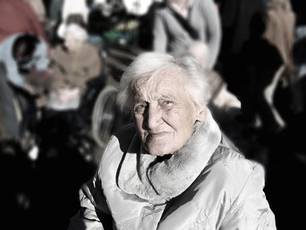Living With COPD: Tips
 For those people who struggle with chronic obstructive pulmonary disease (COPD), the simple act of breathing can be a struggle. For many, COPD becomes a way of life, so steps must be taken to manage it.
For those people who struggle with chronic obstructive pulmonary disease (COPD), the simple act of breathing can be a struggle. For many, COPD becomes a way of life, so steps must be taken to manage it.
COPD affects more than 16 million Americans, according to the Center of Disease Control and Prevention. However, millions more have COPD, but have not been diagnosed and are not being treated.
Symptoms of COPD include frequent coughing or wheezing, excess phlegm or sputum and shortness of breath. Adults who have COPD are more likely to be unable to work and have trouble with daily activities—symptoms that can be exacerbated for those who smoke and who aren’t physically active.
The impacts of COPD affect a person’s day-to-day life enormously, and they must be addressed. Per the CDC, one in four adults with COPD say they are not able to work while others are forced to miss work because of symptoms. Additionally, half of adults with COPD say they limit their activities because of health problems, and more than 33 percent say they have trouble walking or climbing stairs. Finally, long-term medical costs tend to be higher for adults with COPD than those without.
Mitigating COPD impacts
There are things that individuals can do to make living with COPD easier. The most important is to quit smoking, if you are. If help is needed, speak with your doctor. There are solutions that may be able to help you in your journey to help you breathe easier.
Secondly, ask your doctor about participating in pulmonary rehabilitation. It is a personalized treatment program – as mentioned above – that is designed to manage COPD symptoms to improve quality of life. For example, these plans may include learning to breathe better and conserve physical energy, and may include specific advice regarding the best foods and exercise.
Nearly important as participating in a pulmonary rehabilitation program is properly taking medications, which can help control symptoms such as coughing or wheezing.
Finally, though it is not really something an individual can control, try to avoid lung infections, which can cause serious problems in people with COPD. The CDC recommends some vaccines, such as flu and pneumonia, for people with COPD.

